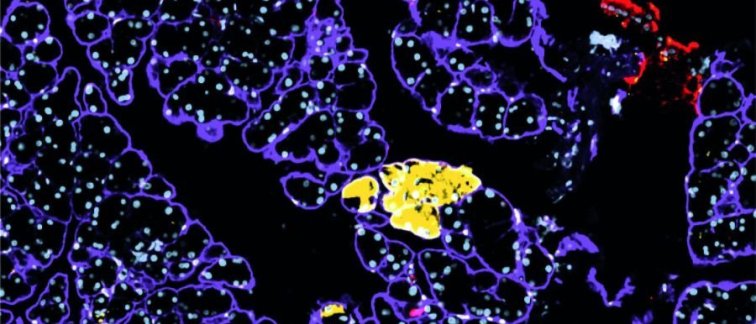In agreement, previous work in the pancreas using short term lineage tracing, and the isolation of specific cell populations, has suggested that stem cells contribute to tissue maintenance. Recently, the research groups of Louis Vermeulen and Maarten Bijlsma at Amsterdam UMC aimed to study the dynamics of stem cells in this organ using a mouse lineage tracing model based on sporadic and spontaneous activation of a label, aging these mice up to 2.5 years (!), and a mathematical model to capture the observed lineage tracing data. Surprisingly, these analyses unequivocally pointed to an absence of functional stem cells in the mouse adult pancreas.
In ongoing follow-up research, it was also found that this extensive cellular plasticity is also found in pancreatic cancer and shows that this feature is intrinsic to this organ. This has important implications for our understanding of the biology of the pancreas and the poor-prognosis cancer that originates from this organ.
This work, performed by Cancer Center Amsterdam researchers Sophie Lodestijn, Tom van den Bosch, Lisanne Nijman, Maarten Bijlsma, and Louis Vermeulen will be published today (August 5th, 17.00 p.m.) in Cell Stem Cell.
This work is supported by The New York Stem Cell Foundation and grants from KWF, the Maurits en Anna de Kock Stichting, Worldwide Cancer Research, the Maag Lever Darm Stichting (MLDS-CDG 14-03), the European Research Council, ZonMw (Vidi to one of researchers).

